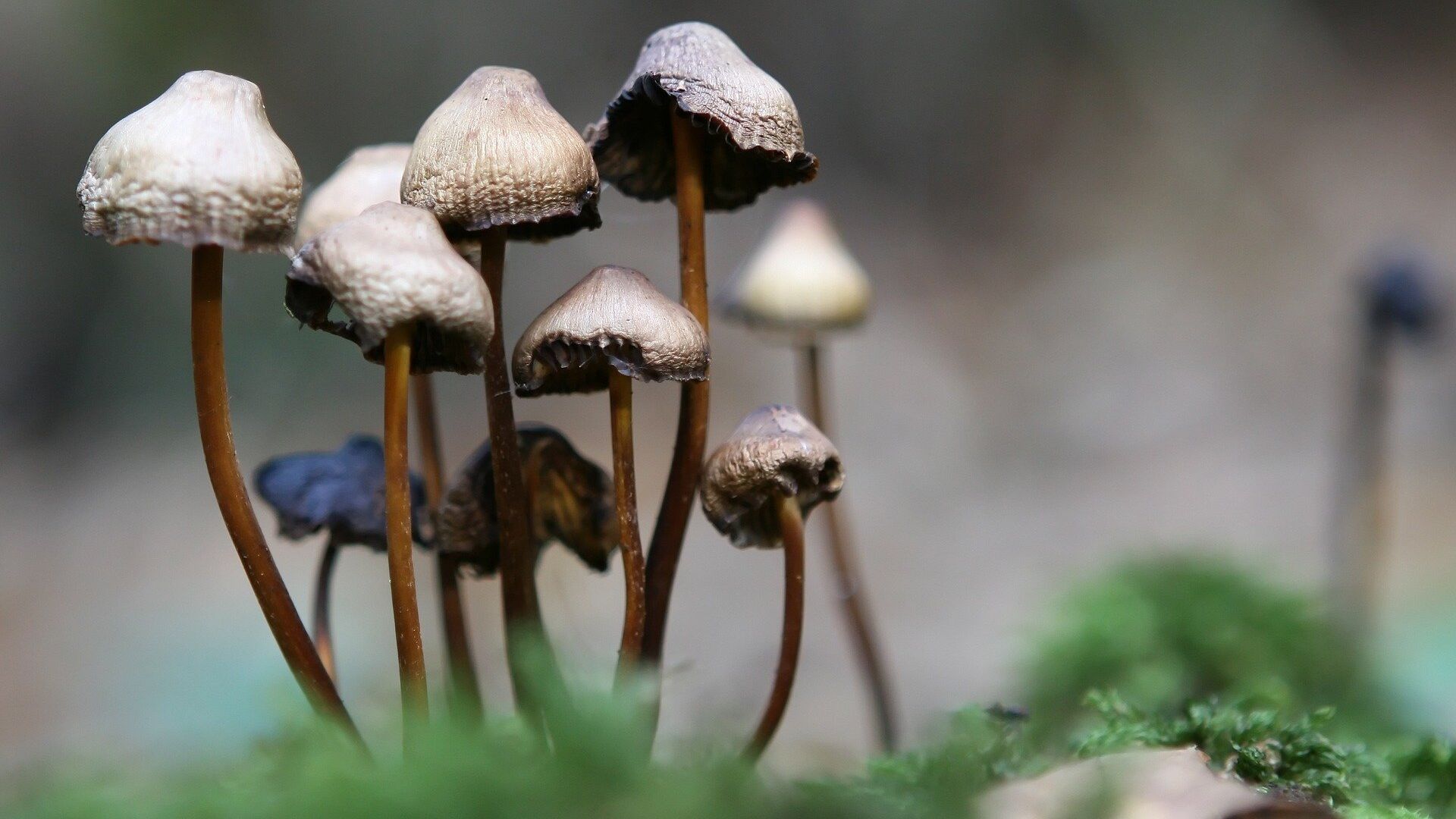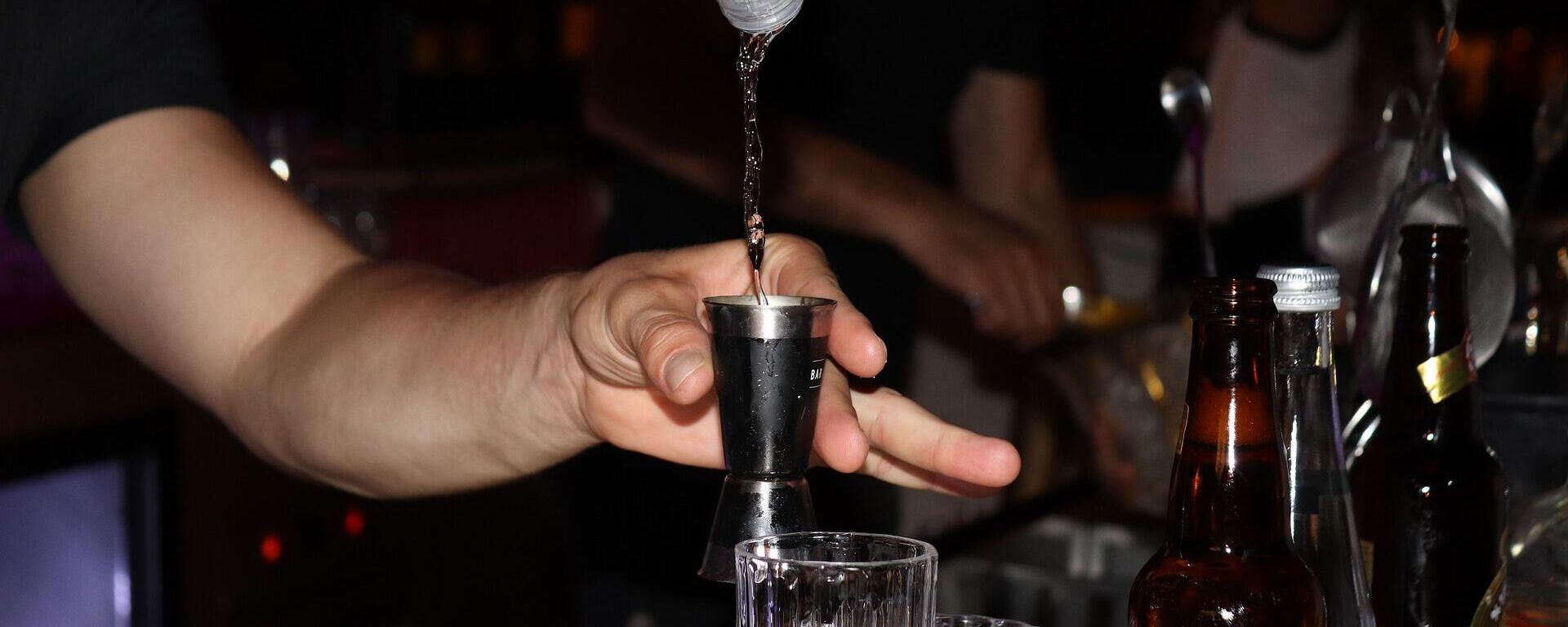https://sputnikglobe.com/20220825/the-active-ingredient-in-magic-mushrooms-shows-promise-in-curbing-alcoholism-1099966335.html
The Active Ingredient in ‘Magic Mushrooms’ Shows Promise in Curbing Alcoholism
The Active Ingredient in ‘Magic Mushrooms’ Shows Promise in Curbing Alcoholism
Sputnik International
In the 1950s, psychedelics were a growing area of research for the treatment of alcoholism and other mental disorders. The initial results were promising, but... 25.08.2022, Sputnik International
2022-08-25T03:33+0000
2022-08-25T03:33+0000
2023-04-21T10:42+0000
science & tech
mushrooms
alcohol abuse
alcoholism
medical study
study
health
addiction
https://cdn1.img.sputnikglobe.com/img/105397/42/1053974212_0:94:1920:1174_1920x0_80_0_0_6a3babafcb2c2ef85408328c1365f724.jpg
The main active chemical in so-called “magic mushrooms” – psilocybin – has been shown to significantly reduce alcohol dependency in patients, according to a new study by NYU Langone Health and published in JAMA Psychiatry on Wednesday.The study observed 93 adult men and women who had been diagnosed with alcohol use disorder and had at least four days of heavy drinking in the past month. Heavy drinking was defined as five or more drinks in a day for a man and four or more drinks in a day for a woman.Researchers gave 48 participants at least one dose and up to three doses of psilocybin, while 45 participants received a placebo. Both groups were given 12 psychotherapy sessions. The group that received psilocybin only drank heavily on 10% of the days after their treatment during the seven-month session, while the placebo group drank heavily on 24% of the days.Compared to their baseline levels before the experiment began, the psilocybin group reduced their drinking by 83% compared to 51% for the placebo. Additionally, 48% of the psilocybin group had stopped drinking entirely during the seven-month period the study ran, compared to 24% of the placebo group.The researchers noted that no serious adverse side effects were reported during the trial. After the trial ended, every participant was offered a chance to take psilocybin, so the placebo group could experience the positive effects of the drug.Bogenschultz also believes the treatment could extend beyond alcohol and be used to treat “other addictions such as cigarette smoking and abuse of cocaine and opioids.”The study continues a rise of interest in psychedelics like psilocybin, LSD, and MDMA (the main ingredient in ecstasy) to treat a variety of mental disorders including PTSD and depression. A 2016 study also performed at NYU Langone showed that a single dose of psilocybin brought quick, significant, and long-lasting relief for distressed cancer patients dealing with anxiety and depression.Kostas also noted that he was not replacing one addiction with another, stating that he has not had a drink or any psychedelics since leaving the study.The treatment is at least a few years from being approved for general public use by the FDA. The researchers are planning a large-scale, multisite trial with more than 200 participants. They also note that more research needs to be done in the areas of dosage and compatible types of psychotherapy.
https://sputnikglobe.com/20220718/study-suggests-even-small-amounts-of-alcohol-for-those-under-40-risks-health-1097405431.html
Sputnik International
feedback@sputniknews.com
+74956456601
MIA „Rossiya Segodnya“
2022
News
en_EN
Sputnik International
feedback@sputniknews.com
+74956456601
MIA „Rossiya Segodnya“
Sputnik International
feedback@sputniknews.com
+74956456601
MIA „Rossiya Segodnya“
science & tech, mushrooms, alcohol abuse, alcoholism, medical study, study, health, addiction
science & tech, mushrooms, alcohol abuse, alcoholism, medical study, study, health, addiction
The Active Ingredient in ‘Magic Mushrooms’ Shows Promise in Curbing Alcoholism
03:33 GMT 25.08.2022 (Updated: 10:42 GMT 21.04.2023) In the 1950s, psychedelics were a growing area of research for the treatment of alcoholism and other mental disorders. The initial results were promising, but after the drugs became popular recreationally during the cultural revolution of the 1960s, the drugs were banned and research halted.
The main active chemical in so-called “magic mushrooms” – psilocybin – has been shown to significantly reduce alcohol dependency in patients,
according to a new study by NYU Langone Health and published in JAMA Psychiatry on Wednesday.
The study observed 93 adult men and women who had been diagnosed with alcohol use disorder and had at least four days of heavy drinking in the past month. Heavy drinking was defined as five or more drinks in a day for a man and four or more drinks in a day for a woman.
Researchers gave 48 participants at least one dose and up to three doses of psilocybin, while 45 participants received a placebo. Both groups were given 12 psychotherapy sessions. The group that received psilocybin only drank heavily on 10% of the days after their treatment during the seven-month session, while the placebo group drank heavily on 24% of the days.
Compared to their baseline levels before the experiment began, the psilocybin group reduced their drinking by 83% compared to 51% for the placebo. Additionally, 48% of the psilocybin group had stopped drinking entirely during the seven-month period the study ran, compared to 24% of the placebo group.
The researchers noted that no serious adverse side effects were reported during the trial. After the trial ended, every participant was offered a chance to take psilocybin, so the placebo group could experience the positive effects of the drug.
“While we did not directly compare Psilocybin to other active treatments in this study,” Dr. Michael Bogenschutz, the senior study author and director of NYU Langone’s Center for Psychedelic Medicine, said at a press conference, “the effects we observed were considerably larger than those of current approved treatments for alcohol use disorder.”
Bogenschultz also believes the treatment could extend beyond alcohol and be used to treat “other addictions such as cigarette smoking and abuse of cocaine and opioids.”
The study continues a rise of interest in psychedelics like psilocybin, LSD, and MDMA (the main ingredient in ecstasy) to treat a variety of mental disorders including PTSD and depression. A
2016 study also performed at NYU Langone showed that a single dose of psilocybin brought quick, significant, and long-lasting relief for distressed cancer patients dealing with anxiety and depression.
“I’d say it saved my life,” says John Kostas, who participated in the alcohol study. “My first AA meeting was when I was 16 years old. I was 25 when I found the clinical trial and by that time I was treatment resistant. I had tried everything to no avail, AA, rehab, inpatient, outpatient, different pharmaceuticals, I saw different specialists. You name it, I tried it, probably more than once. … I stopped drinking right after my first psilocybin session.”
Kostas also noted that he was not replacing one addiction with another, stating that he has not had a drink or any psychedelics since leaving the study.
The treatment is at least a few years from being approved for general public use by the FDA. The researchers are planning a large-scale, multisite trial with more than 200 participants. They also note that more research needs to be done in the areas of dosage and compatible types of psychotherapy.


